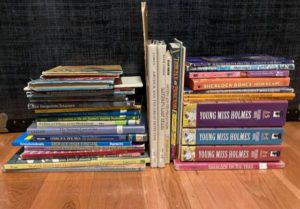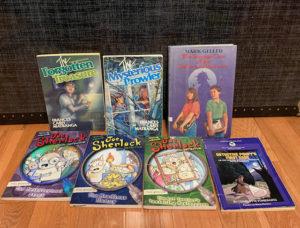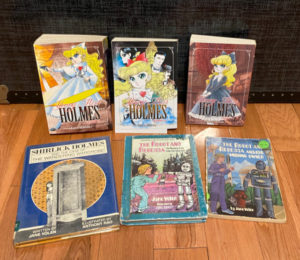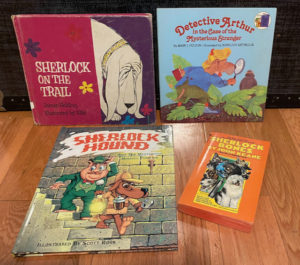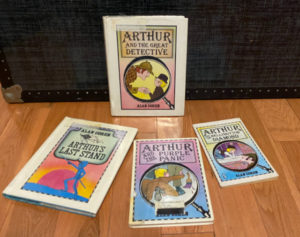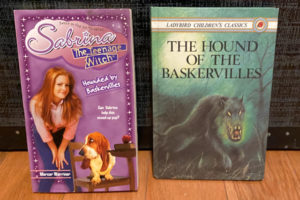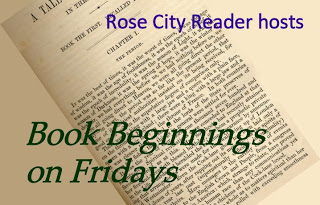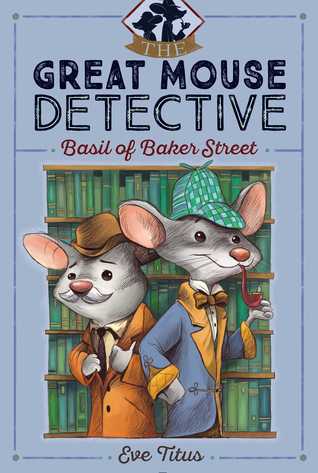Things have been rough in the world of late, and my little corner of it is no exception. But at the end of a particularly rocky week personally, I came home from work to a box full of books.
Not just any books, of course. These are Sherlockian kids’ books, the kind of books of which, being both a Children’s Librarian and a Sherlockian, I have curated a small collection.
That collection just got bigger.
Kids’ books tend to have short lifespans; they come into print and go out again at speed. The intended audience is not the adult collector, but the child (or teen) looking for a fun read. They get tossed into backpacks, carted around, and generally enjoyed and then disposed of.
And that’s great! That’s what they’re for!
It does, however, present challenges for the collector, or even someone just looking to read them later. Last year, while researching for a presentation (that was sadly scuttled by the pandemic), I had to get special permission to borrow one of the later Basil of Baker Street books, because it was the only copy in my very large library system, and so had been made non-circulating.
So you can imagine how excited I was to receive an email from Denny Dobry, who was arranging a very large sale of Sherlockian items to benefit the BSI Trust. He receives a lot of stuff, and the market for the sort of books I collect is quite small. He had heard about my collection, and he offered me the pick of what he had.
I resisted the temptation to just say, “Send the lot and I’ll sort it out here,” because even I do not need a third copy of Railroad Arthur. (Why do I already have two copies of that book? Another story for another day.)
There were books I’ve been trying to find for ages, like Arthur and the Great Detective, and books I had no idea existed, like Jane Yolen’s The Robot and Rebecca. Sherlock Holmes as a Muppet, as a bird, as a bug, as a kid. Chapter books, picture books, manga. And, of course, an edition of Hound of the Baskervilles.
I took a few quick photos before finding spots on the shelves. I’m sure I’ll have more to say about the books as I read them!
Is there anything better than book mail?
